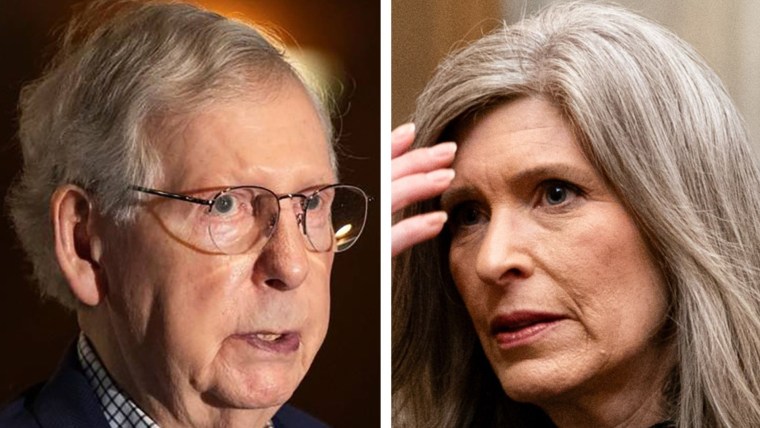Mitch McConnell may no longer be the Senate majority leader, but he does not lack for influence in the chamber’s caucus. In a private meeting Tuesday amid Republicans’ scramble to pass their budget reconciliation bill, McConnell tried to assuage the fears of senators facing blowback. “I know a lot of us are hearing from people back home about Medicaid,” he said, according to Andrew Desiderio of Punchbowl News. “But they’ll get over it.”
Will they, though? It’s true that many voters have short memories. But something tells me this one isn’t going to be forgotten — and other Republican lawmakers don’t share McConnell’s confidence.
We could see a wave of rural hospital closures in a system that already struggles to serve many of its most vulnerable people.
As more and more of those voters are learning, the “One Big Beautiful Bill” pays for its massive tax cuts for the wealthy in large part by cutting Medicaid, the health insurance program that now covers more than 71 million people. The bill also makes plans on the Affordable Care Act exchanges, which cover 24 million people, more expensive and more difficult to sign up for. Put it together, and under the version of the bill passed by the House, 16 million people would lose their health insurance, according to estimates by the Congressional Budget Office. It would be the most devastating loss of health care coverage in America's history.
Senate Republicans have changed the bill — but, believe it or not, their version is even worse. The Senate legislation, as it stands, would limit how much states can tax health care providers, a technique states use to increase the federal contribution to the program and direct more funds to hospitals. That would particularly exacerbate rural hospitals’ funding crisis. Nearly 200 rural hospitals have closed or severely limited services in the last 20 years. According to a recent analysis by the Center for Healthcare Quality and Payment Reform, another 700 are at risk of closure — nearly a third of all rural hospitals in the country. If Republicans limit both the amount states can support these hospitals and the ability of their patients to pay, we could see a wave of new closures in a system that already struggles to serve many of its most vulnerable people.
Republicans have been successful in convincing their rural constituents to ignore the consequences of GOP policies. Since the mid-2000s, Republicans have widened their margins in rural counties, often by encouraging voters to focus on culture war demagoguery, But at least some Republicans are finding this bill hard to explain to “people back home.” And while it may not make so much of a difference that a state as deep red as Kentucky is suddenly in play, GOP incumbents in more difficult races won’t have such a cushion.

Politico reports, for instance, that House Speaker Mike Johnson “is warning in private that Senate Republicans could cost House Republicans their majority next year if they try to push through the deep Medicaid cuts in the current Senate version.” On the Senate side, North Carolina’s Thom Tillis, who faces a tough re-election race next year, went so far as to hand out a flyer to his Republican colleagues showing them that his state stands to lose tens of billions of dollars if the provider tax is capped.
To alleviate the cuts, some Republicans have suggested creating a “stabilization fund” for rural hospitals. A draft from the Senate Finance Committee, however, only earmarks $15 billion for the fund — a fraction of the shortfall these hospitals face. But even the final version is much larger, it means the government would take money away from those hospitals and then … give some of it back. That’s government efficiency, GOP-style.
McConnell’s own state of Kentucky has been a Medicaid success story.
After McConnell’s remarks became public, his office insisted that he was only talking about undeserving freeloaders who are “abusing Medicaid” by getting health insurance and not working. Republicans have used that myth to justify slashing the program and imposing onerous paperwork requirements on recipients.
In fact, McConnell’s own state of Kentucky has been an extraordinary Medicaid success story. Unlike many Republican states, Kentucky quickly accepted the expansion of Medicaid included in the Affordable Care Act. Today, it has one of the lower rates of uninsurance in the country, and only three states have more of their population covered by Medicaid.
You can tell a lot about politicians by which people they care about and work to protect. For instance, Republicans are so concerned about wealthy heirs that the House version of the budget increases the estate tax exemption to $15 million. Yet, what worries Republicans do have about Medicaid cuts seem to stem not from the health consequences of those cuts —including Americans dying earlier because they couldn’t get care — but possible political backlash.
If this bill passes — in the House version, the Senate version or something in between — the fallout will be devastating. Perhaps McConnell is right that voters will “get over it.” But perhaps enough voters will be extremely angry — and will remember who was responsible.

